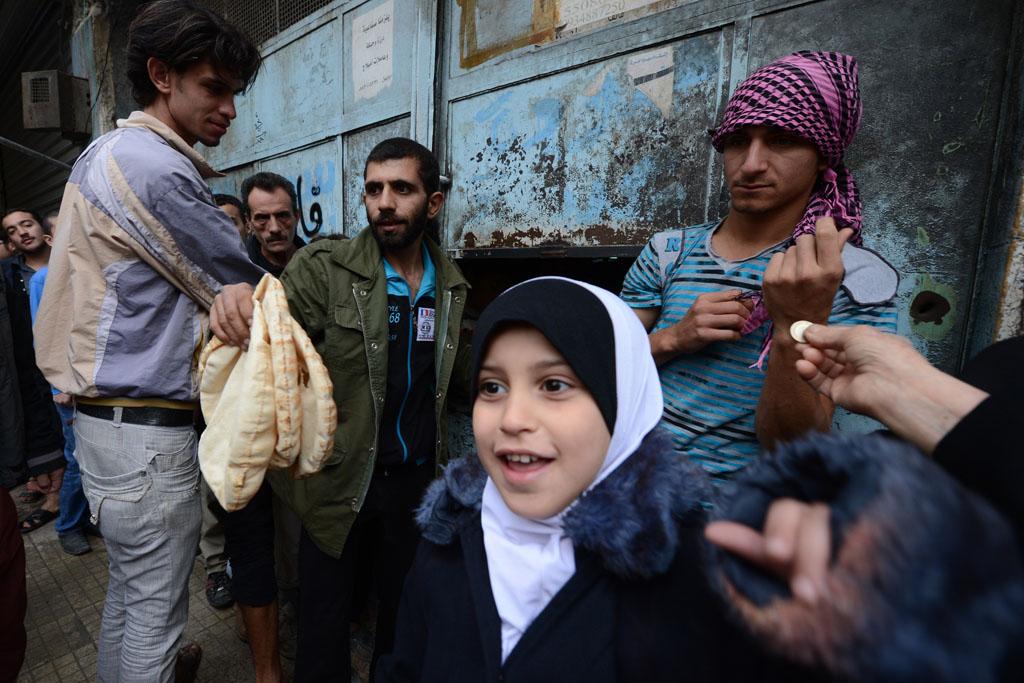Syria ceasefire broken hours after it begins; 3 reported dead in early fighting
Syrian people crowd outside a bakery in the Salaheddin district of the northern city of Aleppo on October 25, 2012. The Syrian military and the country’s main rebel force have agreed to halt combat operations from Friday morning for the Muslim holiday weekend, but both also reserved the right to respond to attacks.
Only hours after it began, gunfire and death fractured Syria’s fragile ceasefire, including a car bomb explosion in the capital.
Opposition groups report three dead at Harasta, a suburb of Damascus, while battle for control of a northern military checkpoint seems to have never stopped.
International peace envoy Lakhdar Brahimi appeared to have convinced opposition forces and the regime to lay down their weapons for the four-day Eid al-Adha holiday, Reuters reported.
However, Syrian activists said in addition to the violence in Harasta and at the northern military base, Wadi al-Daif, government forces fired six rockets at Homs, although there were no reports of casualties there, Reuters reported.
The violence confirmed fears of Free Syrian Army coordinator Mohammed Hajuma, a leader in charge of refugees on the Turkish border who told GlobalPost's Tracey Shelton on Thursday that he didn't have faith in the ceasfire or in the government's promise.
"We don't trust this. We know our government. … We know what they're capable of," he said.
The ceasefire was to begin at 6 a.m. local time, but some reported fighting a little more than four hours later, BBC said.
The need for a ceasefire was high in a nation beleaguered by more than 30,000 dead in nearly 20 months of fighting.
More from GlobalPost: Syria will respect holiday cease-fire, with conditions
Later in the day, a car bomb exploded near the southern edge of the capital, Damascus.
Syrian state media said the explosion caused casualties, but didn't say how many, according to The Associated Press.
There was also no indication of a target.
The government agreed to the stop hostilities for the most holy Muslim holiday of Eid al-Adha, the feast of the sacrifice, although the government warned on Thursday it wouldn’t tolerate any attacks during the break.
“Syrian armed forces will, however, reserve the right to reply to terrorists attacks, attempts of armed groups to reinforce or resupply, or attempts to infiltrate from neighbouring countries,” state TV announced, BBC said.
In spite of the resumed violence, Syrian TV showed President Bashar al-Assad attending morning prayers on Friday.
There was some evidence the ceasefire had held in some parts of the country, with protesters holding anti-government demonstrations, but no violence breaking out, according to The Associated Press.
“It reminds me of the early days of the revolution, the days when people could go out and protest peacefully,” activist Khaled al-Shami told the AP, adding it’s something that “unfortunately will not last.”
More from GlobalPost: How Syria’s conflict stretches beyond its borders
GlobalPost correspondent Tracey Shelton contributed reporting from Atmeh, Syria.
